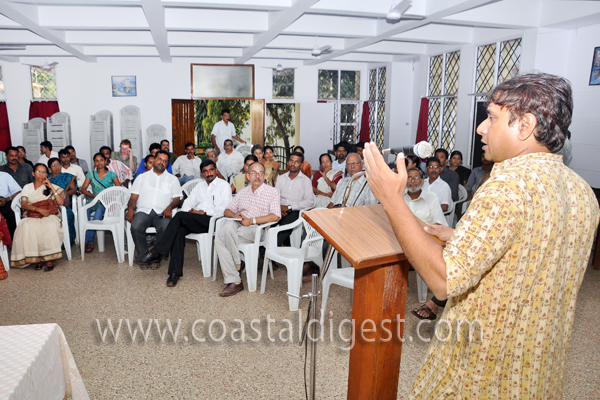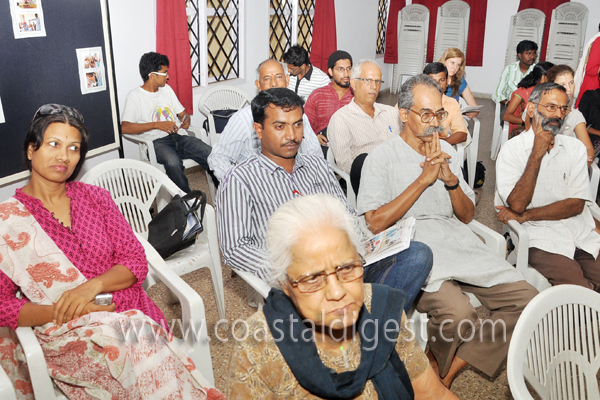
Mangalore, April 10: Privatisation of water is financially imprudent, ecologically unsustainable and socially unjust and a strong public opposition is required in Mangalore as authorities have planned to implement it in the coastal city, said Kshitij Raj Urs, Karnataka People's Campaign for Right to Water.
He was speaking at a discussion organized by Citizens' Forum for Development, Mangalore, at School of Social Work, Roshni Nilaya in the city on Tuesday.
Enlightening the gathering on the privatization and commoditization of water by governments against people's opinion, Mr. Urs said that authorities are budging to corporate powers who want to utilize the natural resource wealth of water to earn profits.
Stating that Karnataka was the first state in the country to privatize water, Mr. Urs said that the state government had in a deal with a French private company allowed parts of Hubli, Dharwad, and Belgaum to be used as 'demonstration wards' wherein they would be the first beneficiaries of the water resource in the region. “The demonstration wards would have first access to water while the street next to that very ward would not. They have designed it in such a way that they should get water first and what remains should be distributed to other wards. The water bills in these areas have gone up ten times of what people used to pay earlier”, he said.
Mr. Urs said that utter injustice is being done to people by forming policies facilitating privatization of water wherein the one who pays gets water supply and the ones who don't, connections are cut off to their houses mercilessly besides removal of public taps. “There are instances where locks have been put up on public taps”, he lamented. “There is something called as 'lifeline water' wherein 135 litres per day is considered as the minimum amount of water required per day. At least this amount of water should be supplied free of cost to all”, he said.
Criticising the central and state governments alike, Mr. Urs said that the JNNURM project of the Central Government is unjust. “Under the JNNURM scheme, the union government provides a part of the money and the rest has to be managed by the state government. It forces the state government to agree to conditions such as repealing of land ceiling act, conversion of agricultural land to non-agricultural purposes, foreign ownership of land and so on. The state government is made to privatize a public service”, he said.
Warning that Chief Minister D V Sadananda Gowda's budget proposal of seting aside Rs. 147 crore for 24x7 water supply in Mangalore is actually a World Bank estimate to privatize water in the region, Mr. Urs said that people's mobilization is the only way to stop such unfair policies. “Today Dakshina Kannada district's Deputy Commissioner is forcing your corporators to privatize water as the city is facing water crisis”, he said.
Mr. Urs said that although Tatas had tried to privatize water in Mysore by taking reins of Vanivilas Water Works, due to their inefficiency to handle it and people's strong opposition, re-municipalisation of water took place just three days ago, which is a very good development.
MLA U T Khader expressing his views on the occasion suggested that a seminar and briefing be held on the issue for corporators and representatives of local bodies such as Panchayats to create awareness. He also assured that he will raise the issue in the Assembly.










Comments
Add new comment